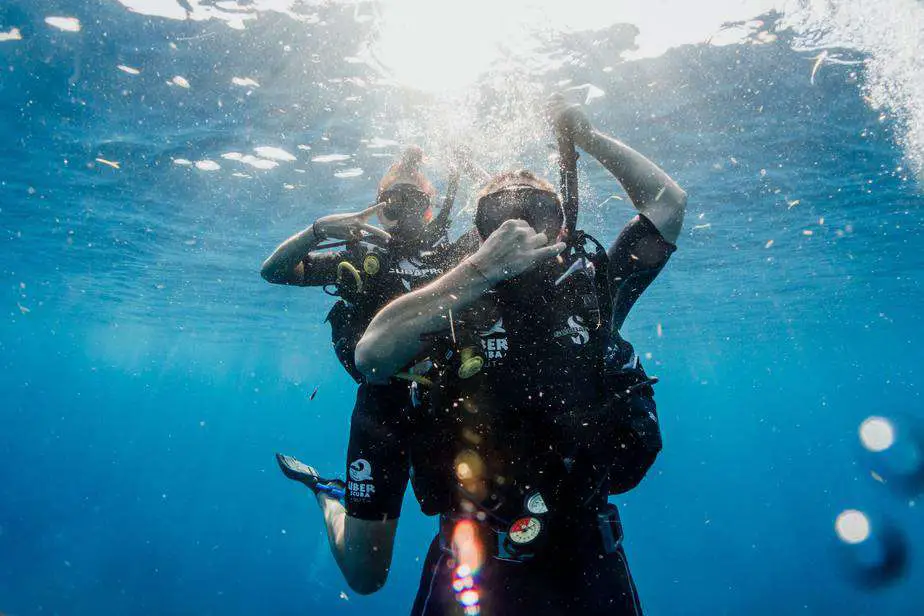Most people who scuba dive do so recreationally as a hobby. They do it because it is an enjoyable pastime that lets them see exotic underwater creatures in their natural habitat. It also helps that the feeling of weightlessness and relaxation are fun to experience, particularly for those who live in landlocked states. However, what if scuba diving has gotten a little boring over the years, and now you’re looking for something more competitive and athletic?
While most people participate in scuba diving as a hobby, some take it seriously as a sport. The sport of scuba diving is known as sport diving and it uses the same equipment that an open-circuit recreational scuba diver uses. However, the objective is far different. Sport divers compete in various underwater events either individually or as a team at officially sanctioned competitions. The governing body is the CMAS Sport Committee, and sport diving has been played since the late 90s, mostly in Europe. There are also many other types of diving which require exceptional skill and training in order to do at a high level, even if they aren’t technically sports.
Even though scuba diving is accessible to most people, there are ways to improve your skill through getting more certifications and trying out new types of diving. In addition to sport diving, there are other more extreme forms of diving. While these are not officially sports, they are something to look into if you’re an adrenaline junkie looking for your next adventure.
In this article, we’ll discuss the difference between scuba diving as a sport and as a hobby. We’ll also discuss other athletic types of diving for those looking to advance and reach new scuba diving milestones. Whether competing officially as a sport diver or not, scuba divers are certainly athletes in their own right.
Are scuba divers athletes?
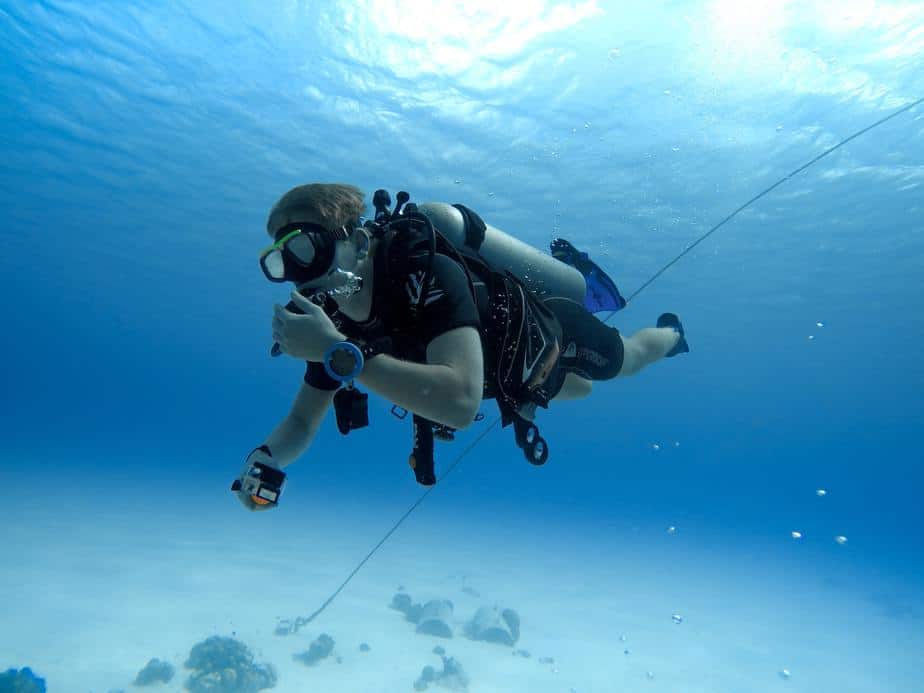
Scuba diving is a widely accessible activity that almost anyone can do. One must first get their Open Water Diver certification and the minimum age to be a full-fledged diver is only 15. If a teenage can be a full-fledged scuba diver, how hard could it be?
With that said, there are some disqualifying medical conditions which you should see a doctor about and get medically cleared to dive to ensure you can work around these conditions. However, most people at nearly any fitness level can learn how to scuba dive if they want to.
The biggest factor holding back most divers is swimming ability. The bare minimum level of fitness to dive is outlined in the swim test, where you must swim 200 m without resting and be able to tread water for 10 minutes without any buoyancy aids.
In terms of athletics, this is not a particularly impressive feat; it’s not something to brag about, essentially. We recognize that this could be problematic for some individuals for various reasons, however it’s something that can be easily overcome with enough effort.
The Oxford definition of an athlete is “a person who is proficient in sports and other forms of physical exercise.”
As we’ll discuss in the next section, there are official scuba diving competitions, making it officially a sport. Plus, scuba diving certainly requires one to be proficient in other forms of physical exercise, namely swimming, so in that regard scuba diving also qualifies. It seems reasonable to conclude, then, that scuba divers are also athletes.
In addition to the Open Water Diver certification, divers can progress even further to Advanced Open Water Diver, Master Diver, and beyond. A significant amount of theory, training, and diving experience is required. We do not think it’s a stretch at all to consider scuba diving enthusiasts to be athletes. Recreational divers may not qualify as much.
However, even recreational scuba diving should not be looked down upon lightly. For many, it is an excellent source of exercise. Going out for a dive burns a similar amount of calories as jogging for the same amount of time. It’s no surprise that diving is also good for your health. Thus, it is worth trying out no matter how intensely you decide to pursue this activity.
Is scuba diving a sport or a hobby?
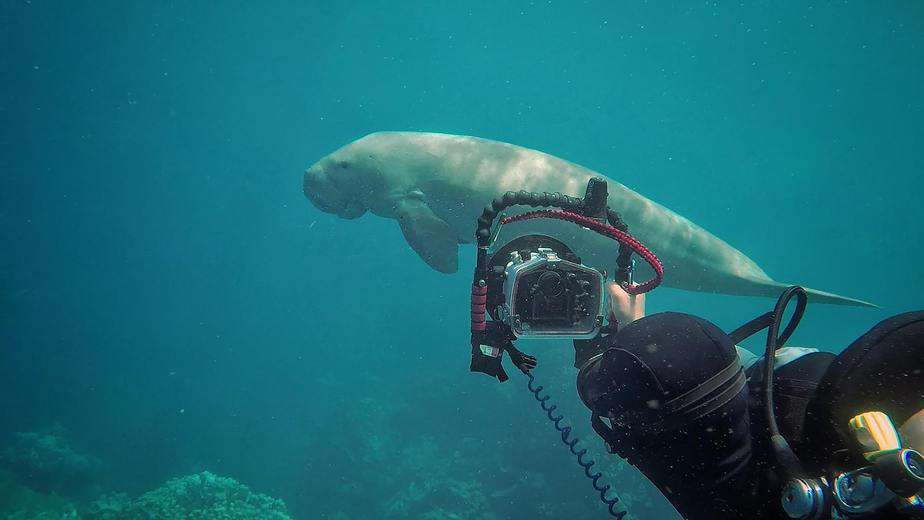
The answer depends on who you ask and how much you want to argue semantics.
Many scuba divers don’t care whether scuba diving is a sport or not and will freely admit that it’s just a leisure activity that they only do while on vacation to relax and escape from the stresses of life.
Most people only pass the entry-level course, which is the bare minimum required to scuba dive, and have no plans to attain any higher certifications.
Whether scuba diving is a sport or not, one needs to distinguish the general term “scuba diving” between recreational scuba diving and whatever else other people are doing. For many, recreational scuba diving is a relaxing hobby that lets them:
- Explore an underwater world far different than what we are used to.
- Continue their education in a new field and face new challenges.
- Make lasting memories through underwater photography, videography, or spending time with family and friends.
- Experience weightlessness as if they are floating through space.
- Visit many new countries they can dive at and do other activities in.
- Meet new friends and improve their social skills.
Oxford Languages describes a sport as “an activity involving physical exertion and skill in which an individual or team competes against another or others for entertainment.”
A hobby is “an activity done regularly in one’s leisure time for pleasure.”
With these definitions in mind, it’s possible that one’s sport is their hobby, but it’s not always the case that what one does for a hobby is a sport. Which do you think applies to scuba diving?
There are more extreme and competitive types of scuba diving such as the aforementioned sport diving. There are also many types of adventure diving you can learn such as blackwater diving, ice diving, cave and wreck diving, and many more. These are not sports because divers aren’t necessarily competing against one another, however sport diving falls within that definition.
Again, some people feel that calling their favorite activity a “hobby” or a “recreational leisure activity” instead of a sport diminishes it. We can certainly consider scuba divers to at least be athletes due to the physical exertion, techniques, and motor skills required to do it proficiently. However, the lack of a competitive aspect for most types of diving disqualifies them from being a legitimate sport.
Other than sport diving, which has a governing body and agreed upon rules, we can perhaps consider people attempting world record dives to be participating in a sport. Does the Guinness Book of World Records count as an official governing body?
For instance, there are people trying to set new world records for deepest depth (currently 332.35 m / 1090 ft by Ahmed Gabr), or longest amount of time spent underwater (145 hours, 25 minutes, 15 seconds by Saddam Killany), and so on. As soon as we add a competitive aspect to it, it can technically be considered a sport, right?
Maybe you care that scuba diving is not considered a sport by many people. Or maybe you don’t. For those who hate referring to it as a hobby, why don’t we call it an “athletic hobby” or an “extreme hobby” instead?
Do scuba divers practice like other athletes?
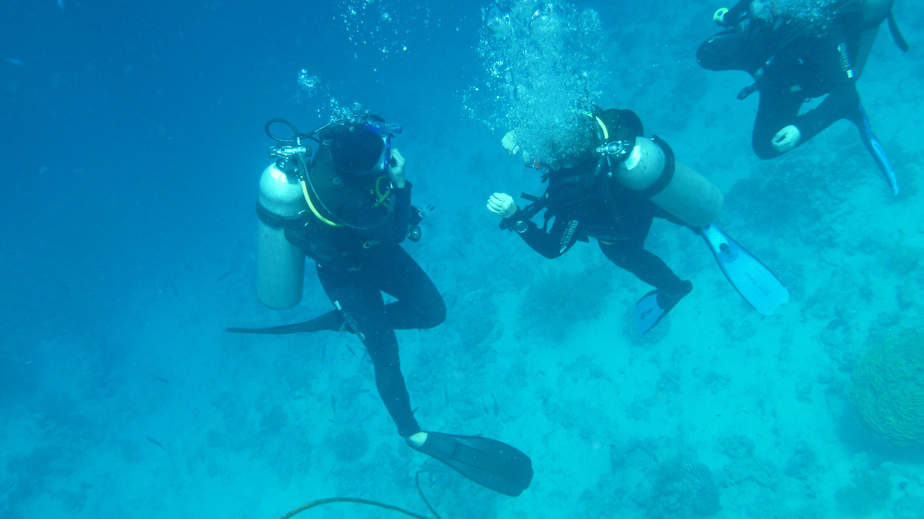
It is recommended that scuba divers dive frequently enough so that they can maintain their skills and knowledge, or perhaps improve it. It’s not a good idea to leave a long time between times.
Unfortunately, most people do not have the luxury of living in a tropical paradise. In fact, many people who love to dive live in landlocked states where there aren’t many options for them to dive. Thus, the only time they get to scuba dive is during their yearly vacation.
When you take that much time off, it’s possible you will forget some diving knowledge, and that your skills will fade. It may still be possible to dive in freshwater bodies of water, such as lakes, so that you can maintain your hard-earned diving knowledge and motor skills.
Scuba divers who live near the coast can practice shore diving. Florida is a great state to do plenty of shore diving. These people are lucky because they can consistently practice and get good exercise. They are the ones with more opportunities to advance to higher certifications and try out new types of diving.
By the way, Open Water Diver certifications don’t expire, so once you earn one, you have it for life. This can be seen either as a good thing or a bad thing. For instance, people who rarely dive don’t have to worry about losing their certification. However, there are people who have gotten it decades ago and have barely used it since. Are they even safe divers anymore?
If you haven’t gone scuba diving in a long time, it’s highly recommended that you take a refresher course so that you can refresh your memory of all of the basics. This is not just for your benefit, but for the benefit of your next dive buddy as well.
Are there official scuba diving competitions?
Some divers might like to have some friendly competitions with friends, such as who has the most certifications, the latest diving equipment, or the most logged dives. They might also compare who has been to the most exotic diving destinations.
However, none of these are legitimate competitions where the divers are adhering to strict rules and their accomplishments are verified by a governing body. An example of a true scuba diving sport is known as Sport Diving.
If you haven’t heard of sport diving, that’s because it’s not very popular, but it’s still a legitimate competition. It was developed in the late 90s in Spain, and today it is primarily played in Europe. In 2011, there were only 64 registered international players. Sport diving is governed by the CMS Sport Committee.
As for the equipment used, it is the same as recreational open-circuit diving. Divers compete against each other in events in swimming pools. There are individual events, and team events requiring 2-4 people. Some of the events are described below.
Individual events:
- Event M 300 metres: A time trial conducted over 300 m. Competitors are to swim 6 laps of a 50 m pool. The first three laps have particular objectives one must accomplish. The final three laps are a straightforward underwater swim.
- Night diving: Competitors will wear a blacked-out mask to simulate night, and they need to find 3 items underwater within 3 minutes.
- Immersion 6 kg: Competitors must lift a 6 kg weight from the bottom of the pool to the surface using a lifting bag. The first to accomplish this is the winner.
Team events:
- Obstacle course: While being timed, a buddy pair must swim a distance of 100 m while carrying out a sequence of tasks. Competitors are judged on how long they take to accomplish these tasks as well as any time penalties they received.
- Briefing: In a team of 4, competitors will perform a search and information gathering task after receiving instructions underwater. They must perform a sequence of tasks underwater, and when the Team Captain is satisfied, they ascend to the surface together. Teams are judged on their precision and on the time it took for them to accomplish the tasks.
There are other scuba diving competitions outside of sport diving. For instance, there are also:
- Underwater photography shootouts: Competitors visit the same area and try to take the best pictures over a set period of time. The winner is the one with the best picture.
- Underwater orienteering: Teams of divers try to navigate an underwater course the fastest using a compass.
Lastly, there’s also the Guinness Book of World Records. You can try to surpass any of the scuba diving world records listed in it. There are some interesting ones, such as the highest altitude scuba dive or fastest 10 km scuba dive. Maybe you can even create an entirely new category and try to have people beat your record.
What other types of diving are there?
Other than recreational scuba diving and sport diving, what other types of diving are there? In this section, we’ll go over only some of the more advanced types of diving that you can work toward doing after you’ve got some experience with regular scuba diving.
While these types of diving are not done in a competitive setting, they certainly require plenty of physical exertion and skill. Perhaps the competition is in who has the best or most interesting story to tell afterwards. What do you think, do any of these types of diving qualify as a sport in your opinion?
Note: You cannot do any of the diving described below unless you have the requisite certification and training to do so.
Night diving
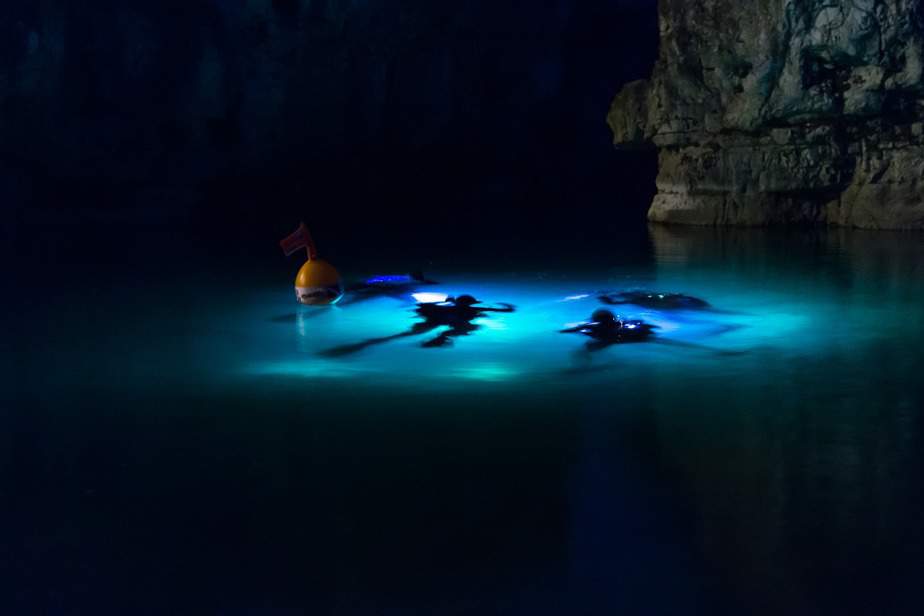
Let’s start off with something that is still very similar to recreational diving. As you can expect from the name, night diving is done at night. What are the differences between diving at night compared to diving during the day? Forgive us for saying that the difference is like night and day, both literally and figuratively.
At night, the entire underwater world is different. It’s just like how there is nightlife in human cities, it appears the underwater world has a certain nightlife too. Fish that normally aren’t seen during the day are active at night. The corals can become incredibly vibrant if you shine your light on them. Even diving in the same area as during the day will feel completely different. We aren’t doing the experience justice with our explanation; you truly have to experience it for yourself to realize that it’s a massive change.
Of course, the biggest issue with night diving is that visibility is very low. We do not recommend attempting it until you have a few regular dives under your belt. The night seems to trigger a primal fear in people, and it’s only exacerbated by the fact that you are underwater and have a limited amount of air to work with. You must be very confident with your scuba diving skill before going for a night dive.
Take the Night Diver course to get started. You might also be interested in fluorescent/UV diving which is another way to night dive.
Drift diving
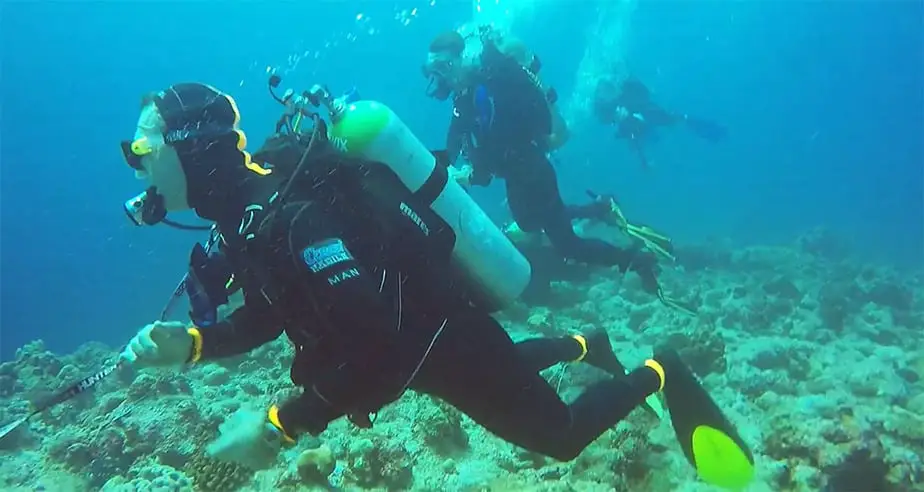
Have you ever been caught in an underwater current? It’s pretty scary when it happens because you are powerless to do anything about it. You can struggle, but that’s just a waste of precious oxygen and energy. The best thing for you to do is to go with the flow.
And that’s exactly what drift diving is. Some thrill-seeking divers discovered that you can actually ride the underwater currents and that it’s actually fun to do so when it’s planned. If the current is strong enough, you don’t even need to kick your fins. The current will let you glide over the ocean floor without any effort on your part. It’s probably the closest feeling you can get to flying.
Now, drift diving isn’t as reckless as it sounds. Divers can usually spot exit points and decide when they want to exit the drift. Exiting the drift requires you to stay low and to try to swim downwards out of it. Never try to swim directly against a current; it’s just a waste of energy.
Not only do you get to ride the drift, but you’ll often see larger marine animals like sharks and manta rays. To learn more about this type of diving, you should take the Drift Diver course to get started.
Deep diving
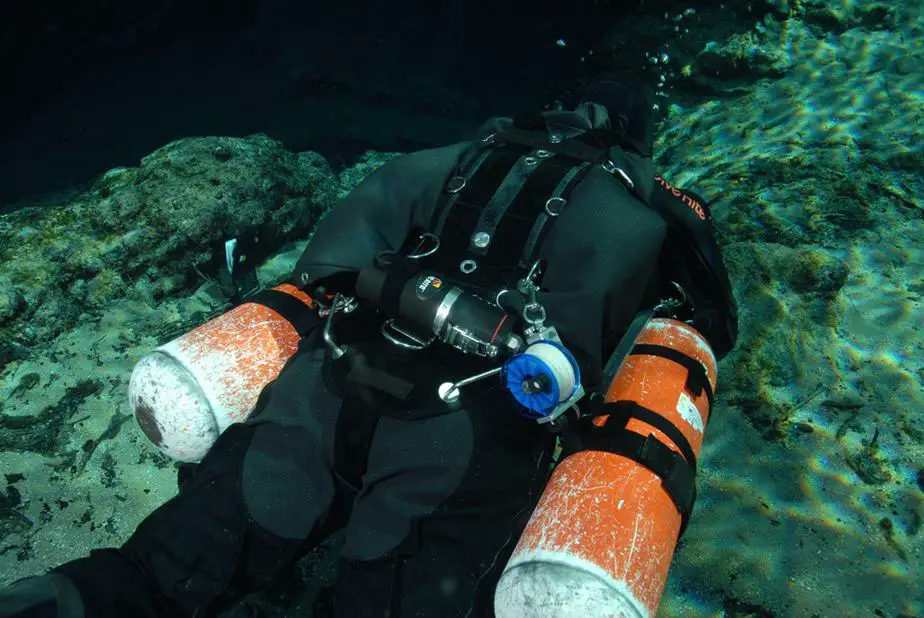
The maximum depth limit for an Open Water Diver is 18 m / 60 ft. For most recreational diving, this is more than adequate. Dive any deeper than this, and your bottom time will decrease drastically as will your no-decompression limit, and your risk of decompression sickness increases.
That is why in order to dive further than that, one must first get additional certifications, which means they must first undergo more training. The maximum limit for what is considered recreational diving is 40 m / 130 ft, and to increase your limits to this much, you will have to pass the Deep Diver course.
What is different about diving deeper? For starters, certain interesting dive sites are only accessible at depths of 100 ft or beyond, such as wreck sites. Also, some species of marine life only reside deeper underwater. Additionally, many of the other types of diving we’ll cover below require you to dive deeper than the standard 18 m / 60 ft limit.
To be honest, even passing the Deep Diver course doesn’t necessarily qualify as deep diving. To truly dive deep, you will have to learn more about technical diving, specifically diving trimix. If you make it all the way through PADI’s technical diving courses, then you can increase your limit to 100 m / 330 ft. Now that’s pretty deep.
Wall diving
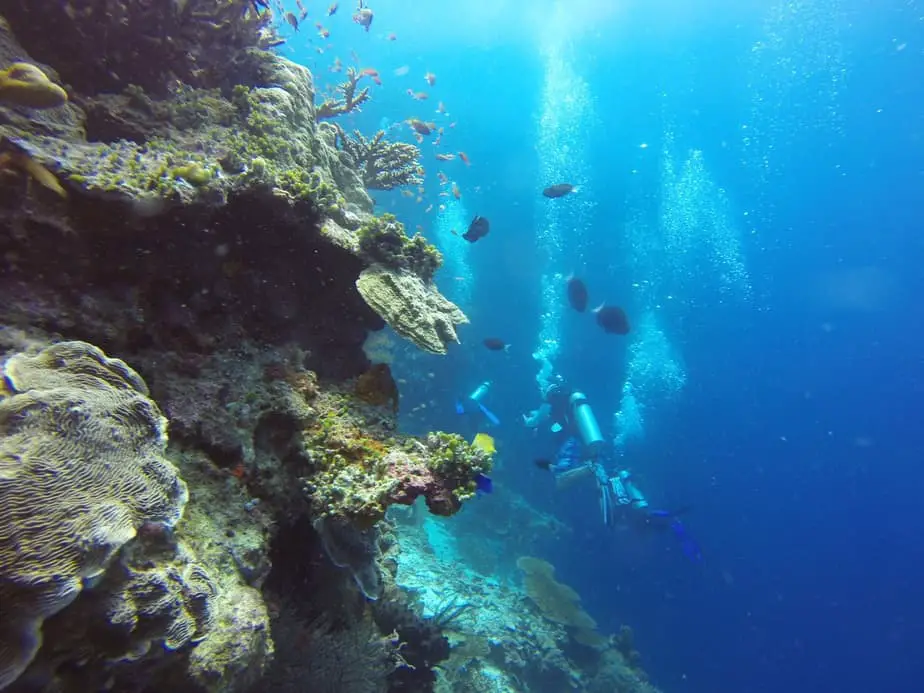
Another interesting diving experience you ought to try out for sport is wall diving. One unique aspect of wall diving is that the dive sites are often in deep locations where you cannot see the ocean floor.
The main attraction isn’t the coral on the bottom, but rather a large wall that is encrusted with coral and sponges. In the wall’s crevices and cracks are incredible amounts of marine life that call the wall home. While wall diving, you get the opportunity to see these creatures up close.
However, wall diving is not for beginners. The top of many walls often start at 60 ft (18 m) deep, and extend far past the maximum depth limit for Open Water Divers. In other words, you need to have the Deep Diver certification to even attempt a wall dive.
Furthermore, many people are scared of the fact that they can’t see the ocean floor. They look down and a bottomless abyss stares back. It’s intimidating for a lot of people whose imaginations wander to mythical deep sea creatures like the Leviathan or giant octopuses stalking the depths.
Practically speaking, not having a clear reference point beneath you also tends to make people lose control of their buoyancy. They might not realize how deep they have descended until they have exceeded their planned maximum depth. If you can overcome these obstacles, then wall diving provides an interesting experience unlike the other types of diving you can do.
Wreck and cave diving
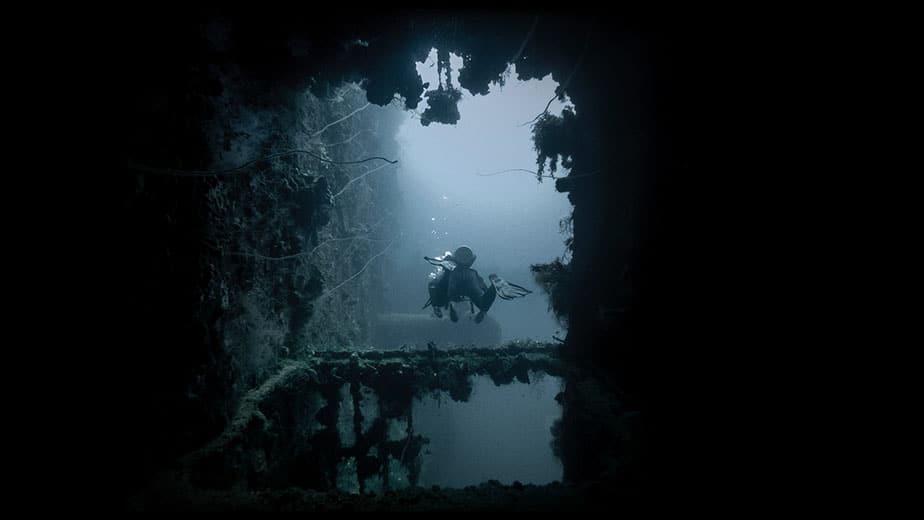
We are grouping cave and wreck diving into one section even though they require taking two different courses. The reason we did this is because they have many similarities. For instance, they both require a diver to go into an overhead environment, with little to no natural lighting, to explore areas that few other divers have gone before, if at all.
Wreck and cave diving are both incredibly risky. Since they take place in an overhead environment, you cannot simply swim up and reach the surface if a problem arises. The limited visibility also means there is higher risk of getting lost, and silt-outs mean that your visibility effectively goes to zero. There is also the risk of getting trapped or stuck.
Cave and wreck divers in particular need to carry with them plenty of redundant gear. If a crucial piece of equipment fails on you during a dive, such as a dive torch, you are out of luck unless you have a backup. They need to bring backup tanks, masks, gauges, and even a backup dive computer, among other things. As you can imagine, cave and wreck diving are incredibly risky.
However, they are also incredibly rewarding for the thrill-seeking explorer. You can examine downed ships or airplanes or large caverns that no other diver has seen. Navigating these tight spaces requires exceptional skill. To be a cave or wreck diver means that you are certainly among the top echelon of divers.
If you find scuba diving to be too easy and want to challenge yourself, there’s few other diving challenges harder than cave diving and wreck diving.
Ice diving
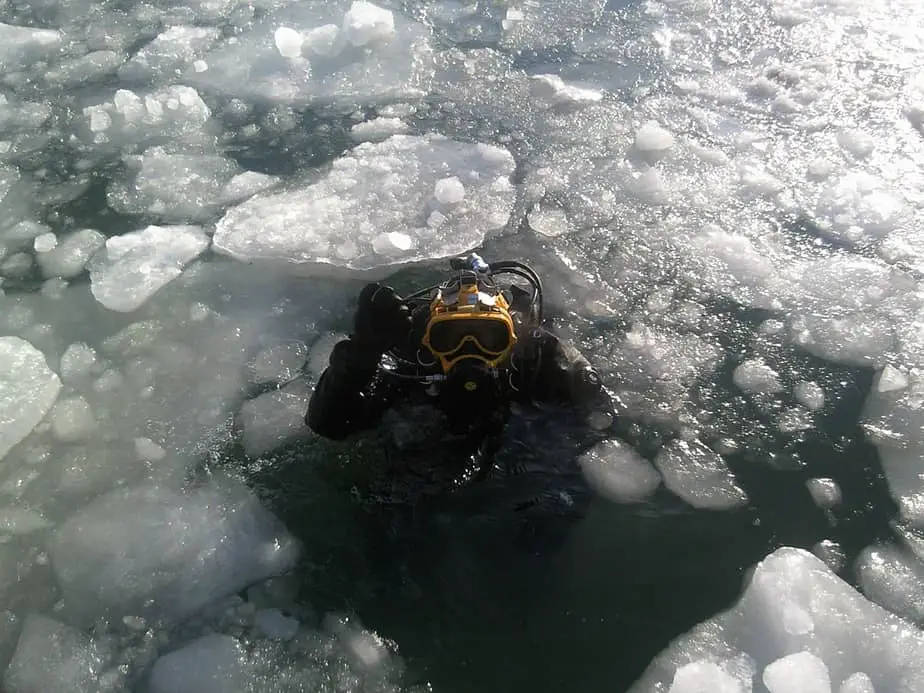
The last scuba diving variation we’ll cover is ice diving. This is arguably the most sportlike type of diving because you cannot ice dive alone. There is a surface team that supports the ice diver, who is the only person in the freezing cold water. The surface team acts as a literal lifeline and will also monitor the diver’s progress and communicate by tugging on the safety line.
Ice diving only has one entry point and one exit point. Like cave and wreck diving, it involves diving in an overhead environment. Getting lost is extremely dangerous because you cannot penetrate the thick ice to get to the surface. Thus, the diver will be tethered to a safety line which leads all the way back to the surface team. If the diver cannot find an exit point, the surface team will drag them back to the starting point.
Due to how cold the water is, the diver will be wearing a dry suit instead of a wetsuit. Their regulators must also be able to withstand the cold without freezing. Each member of the team must be highly trained so that each one can provide assistance if there is an equipment malfunction. You can learn more about ice diving by taking the Ice Diver course.
Are all types of scuba diving considered sports?
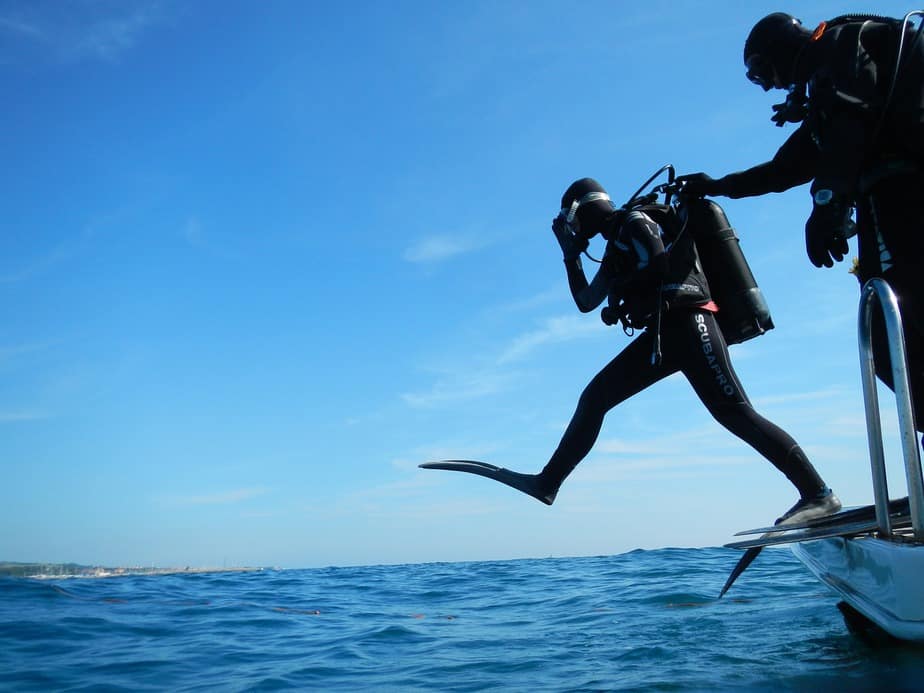
Whether some types of scuba diving are considered a sport or not depends on the definition you prefer.
Again, while scuba diving involves physical exertion and skill, the other half of the definition clearly states that sports require competition. It’s pretty clear, then, that most types of scuba diving are not technically sports.
This is interesting, because people often refer to scuba diving as a “water sport”, and PADI’s magazine is literally called Sport Diver. Are all of these people, including PADI, wrong?
A fact about language is that it’s constantly evolving. If we consider the archaic definition of “sport” which means “a source of entertainment”, then that makes a lot more sense to apply to scuba diving.
Plus, many of the types of diving described in the section above are incredibly challenging, requiring extreme skill and years of training. Most people would not have any issues calling them extreme sports.
Once we go to the most extreme types of diving such as technical diving, we start heading into a realm that few divers have reached. At this point, it may be possible to start training for world records. If you intend on setting or breaking a world record, then you are in competition with the current record holder, and therefore scuba diving technically now fits the modern definition of a sport.
It’ll be hard to convince most people that recreational scuba diving is a sport, however the more extreme types of diving (e.g. cave diving, ice diving) require such skill and training that we feel it’s worthy of calling them sports. Do you think scuba diving is a sport or not?
Is scuba diving in the Olympics?
Unfortunately, scuba diving does not seem to be headed to the Olympics any time soon. The most likely candidate, Sport Diving, is too niche and unfortunately does not seem like it would draw a crowd the same way swimming does during the summer games. If it were to receive a surge of popularity, perhaps an argument could be made for its inclusion in the Olympics.
As of now, the only involvement scuba divers have with the Olympics games is limited to working as safety divers for the various aquatic events or cleaning the pools. Perhaps one day scuba diving will have its day in the spotlight, but for now, it’s out of sight and out of mind.
Parting words
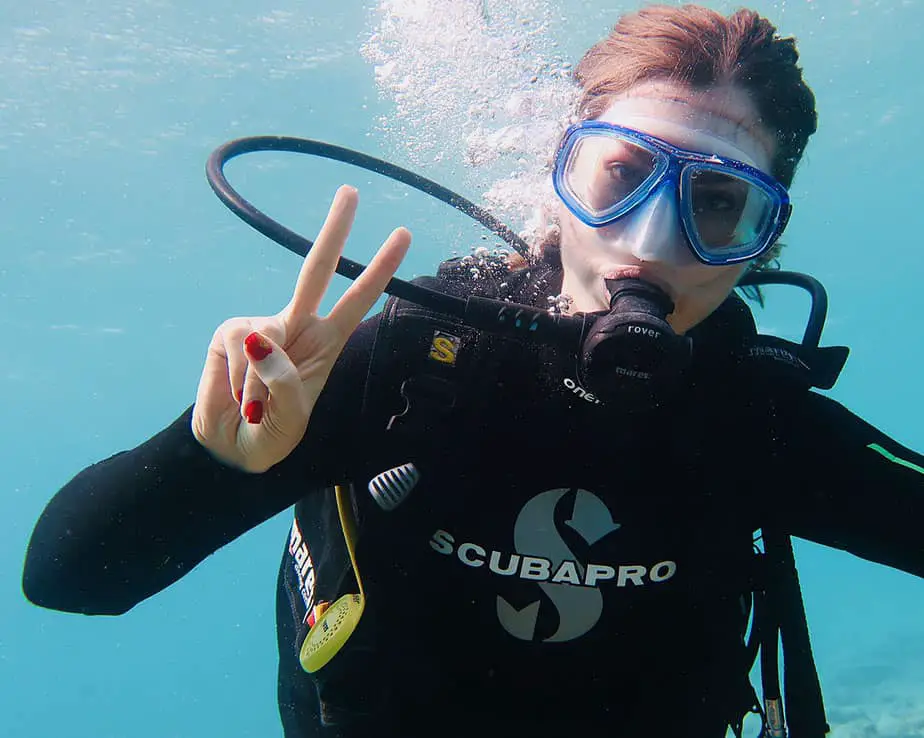
If you love to scuba dive, whether as a hobby or as a sport, the important thing is that you stay safe and enjoy your time doing it.
Do not engage in meaningless or even dangerous competitions such as “who can stay underwater the longest” or “who can dive the deepest” with a friend. Surely you’ve heard the saying “plan your dive, dive your plan”? Do not do anything foolish just for the sake of competition or bragging rights.
As a scuba diver, your fitness level and skill certainly qualifies you to be an athlete. You can be proud of your own individual accomplishments without needing to resort to one-upping another for the sake of sport.
So, don’t take things too seriously, and be satisfied with your level of achievement. Personally, nothing is more dull than arguing semantics like whether scuba diving is a sport or hobby. We did it for the sake of this article, but hopefully it doesn’t bother you either way. Let’s just enjoy scuba diving for what a fun activity it is and not sweat the small stuff.

